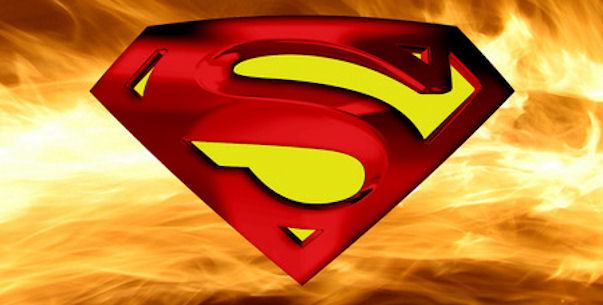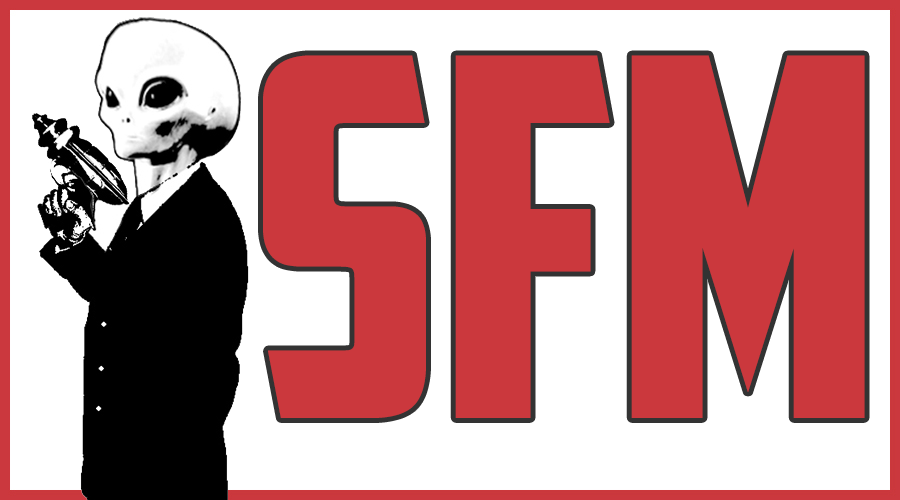
Warner Bros. has fired off a lawsuit, suing Marc Toberoff. Toberoff is the attorney who represents the Shuster and Siegel families in the copyright termination cases that put the studio’s Superman franchise at risk. Warner Bros. is claiming that Toberoff has a conflict of interest because he stands to gain financially from the Superman property.
Here’s the breakdown from Deadline –
Today’s lawsuit alleges these talking points:
— DC Comics filed suit today in the federal court in Los Angeles to protect its longstanding rights in the Superman franchise. During the past 70 years, DC and Warner Bros. have brought together many of the finest writers, artists, television producers and filmmakers to continue to popularize Superman, chronicle his new adventures in all media, and maintain him as one of the world’s best-loved characters. The untold millions invested in the property by DC has resulted in an unbroken 70-year history of consistent success with Superman, equaled by no other fictional hero.
— During their lifetimes, Superman co-creators Jerome Siegel and Joe Shuster never tried to exercise any right to terminate and recapture DC’s copyrights to Superman. They worked constructively with DC to arrive at mutually beneficial agreements, and after their deaths, so did their families. These agreements provided both co-creators and their families lifetime compensation and assured DC’s ability to continue developing and exploiting the Superman property in movies, television, and other media.
— The lawsuit alleges that changed when Los Angeles-based Marc Toberoff and companies under his control learned of WB’s agreements with the families and sought to gain control of DC’s Superman rights. As alleged in the lawsuit, Toberoff caused the Shuster and Siegel families to repudiate their agreements and relations with DC, enter into a web of new agreements with his companies, and terminate and seek to recapture DC’s Superman copyright interests. The complaint alleges this was done to position Toberoff and his companies to secure a controlling financial interest in the families’ collective claims — leaving him as the largest financial stakeholder (47.5%), while relegating the Siegel heirs (27.5%) and Shuster heirs (25%) to minority status.
— At issue is the future generation of Superman movies, television programs, and comics would be placed at risk. The lawsuit asks the Court to confirm DC’s ownership of Superman rights, put an end to Toberoff’s activity allegedly interfering with the rights, and clear the way for all new Superman productions in the future. DC claims it filed this lawsuit only after exhaustive attempts to resolve these matters failed.
…and here’s the press release/response from Toberoff, issued shortly after –
Having substantially lost the legal battle over the Superman copyrights, Warner Bros. and DC Comics (“Warner”) fired their two law firms and hired Daniel Petrocelli. In a desperate effort to avoid the merits of this action, they now resort to a smear campaign, disguised as a lawsuit, against the Siegels’ and Shuster Estate’s long-time attorney, Marc Toberoff. Even before filing their new lawsuit, Warner Bros.’ press machine embarked on a well-coordinated campaign to assassinate Mr. Toberoff’s character.
The baseless lawsuit and press campaign are clearly vindictive, given that Mr. Toberoff has handled a string of successful rights claims against Warner, including securing a preliminary injunction barring Warner’s infringing “The Dukes of Hazzard” movie in 2005.
Warner disingenuously claims that Mr. Toberoff has a “financial stake” in the Superman lawsuits, when they well know the only interest Mr. Toberoff has is a proper contingent legal fee for litigating the Siegels’ (and by extension the Shuster Executor’s) termination rights under 17 U.S.C. 304 (c) with respect to Superman and Superboy.
In recognition of the inferior bargaining position of authors who want their works published, Sections 304(c), 304(d) and 203(a) of the Copyright Act specifically provide authors and certain heirs the right to recover their copyrights by terminating prior contractual grants of copyrights. Ridiculously, Warner now uses the Siegels’ and Shuster Estate’s exercise of this important statutory right to terminate prior contracts as the basis for frivolously claiming tortious contractual interference.
The supposed contracts purportedly interfered with consist of: (1) a 1992 agreement with Joe Shuster’s sister that is irrelevant to the statutory termination rights of the Shuster Executor and, in any event, could not serve to waive the Executor’s inalienable termination rights under the Copyright Act; and (2) a proposed 2002 agreement between Warner and the Siegels that did not close and was expressly held by the Court in the Superman case to be unenforceable.
Warner and Mr. Petrocelli are aware that the frivolous allegations in their complaint do not add up and will never pass muster in the federal courts. However, that’s not the point of their lawsuit. Warner and Petrocelli’s objective is to “muddy the waters” by attacking Mr. Toberoff, potentially conflict him out of the case, and thereby strong-arm the Siegels and Shusters into selling at a cut-rate price the copyrights they have legitimately recaptured. Such unethical tactics are nothing short of deplorable.
Last but not least, Warner oddly attached to their complaint an anonymous, inadmissible letter spewing unsubstantiated and unattributed accusations against Mr. Toberoff, and pressed media contacts to publish the defamatory letter. The anonymous letter is a hyperbolic rant that never “connects the dots” in any legally cognizable fashion.
The anonymous letter was supposedly included with a large pile of privileged documents that were brazenly stolen from Mr. Toberoff’s law offices and mysteriously arrived at Warner Bros.’ doorstep in the midst of this billion-dollar litigation. Even though triplicates of this illegal package were allegedly delivered to top lever Warner executives, including President and COO Alan Horn and former General Counsel John Schulman, Warner claims to have no records whatsoever of such deliveries, nor of the packaging they arrived in. This hardly rings true for a studio that tracks every script or treatment through its doors. Time will tell what role Warner played with regard to the stolen documents and the anonymous letter.
Ironically, Petrocelli, who destroyed the valuable Winnie the Pooh case based on the plaintiff’s use of documents stolen from a Disney dumpster, now purports to rely on privileged documents stolen from Mr. Toberoff’s law offices under very suspicious circumstances.
The Siegels, Shusters and Mr. Toberoff will vigorously defend against Warner’s gutter tactics and baseless accusations and will pursue all appropriate legal remedies against Warner and Mr. Petrocelli. The Siegels and the Shuster Estate remain undeterred in their effort to enforce their legitimate rights under the Copyright Act.
[The Shakedown]
It’s so difficult to choose sides in these cases when you don’t trust lawyers and you tend to wonder if the creator’s ‘estates’ are doing what the creators themselves would be doing. What do you think? Let me know in the comments!

